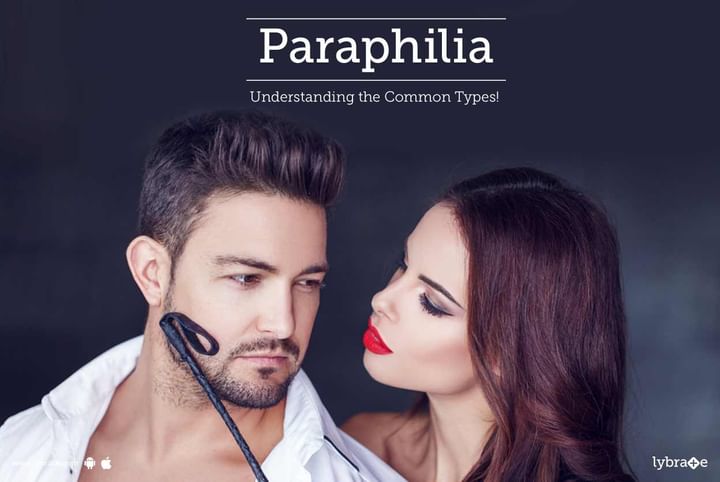Paraphilia - Understanding the Common Types!
There are a number of intimacy related problems that we all go through. While fantasy and desire for a particular thing may be common for every individual, an excessive expression of the same is not. Paraphilia is the experience of extreme sexual excitement or arousal to unusual items, interests, circumstances, fantasies, behaviours or individuals. If paraphilia causes distress or disability to the individual, or if its fulfilment involves personal harm (or the danger of such damage) to others, it is viewed as a paraphilic issue.
It might be hard to talk to individuals suffering from paraphilia because of the embarrassment and reluctance to talk openly about the sensitive topic. It is very important to gain the confidence with these patients to encourage them to speak up and discuss their issues freely. There are diverse types of paraphilia, each of which has an alternate focus of the sufferer's sexual excitement:
- Voyeurism: Viewing a clueless or non-consenting person who is bare, undressing or taking part in sexual movement.
- Exhibitionism: Uncovering one's own particular private parts to an unknown individual.
- Frotteurisim: Touching or rubbing against a non-consenting individual.
- Sexual masochism: Being embarrassed, beaten, bound or generally suffering.
- Sexual sadism: Taking pleasure from making someone else suffer physically or sexually.
- Pedophilia: Sexually engaging with a child that is prepubescent (ordinarily 13 years of age or more youthful)
- Fetishism: Sexual interest with non-living articles or specific body parts of one’s self or someone else.
- Transvestism: Cross-dressing that could be sexually arousing and usually interferes with their functioning.
Some of the symptoms and side effects of paraphilia can include distraction to the point of obsession. This interrupts the individual's endeavours to consider different things or take part in more routine sexual activities with an appropriate partner or accomplice. Paraphilia sufferers may encounter pain, sadness or uneasiness that is incidentally soothed by taking part in paraphilic activities, thereby, giving rise to an addictive cycle.
Treatment
There are some treatment alternatives that should be considered, depending upon the particular needs of every individual case. These alternatives are as follows:
Psychotherapy
Psychotherapy involves conditioning of the brain and mind-set towards normalcy. This may happen through different methods of recovery. These are as follows:
- Psychological behavioural treatment
- Orgasmic reconditioning
- Training of social skills
- Twelve-stage programmes
- Group therapy
- Individual expressive-supportive therapy
Pharmacologic treatment
Pharmacologic mediations might be used to smother sexual conduct. Pharmaceuticals that might be considered in the treatment of paraphilic issue include the following:
- Antidepressants (e.g. specific serotonin reuptake inhibitors [SSRIs])
- Long-acting gonadotropin-discharging hormones
- Antiandrogens
- Phenothiasines
- Mind stabilisers
Surgical mediations (not generally utilised)
Surgical mediations that might be considered (however, not generally utilised) are mentioned below:
- Psychosurgery using stereotaxic tractotomy and limbic leucotomy
- Reciprocal orchidectomy (surgical mutilation). If you wish to discuss about any specific problem, you can consult a Sexologist.



+1.svg)
